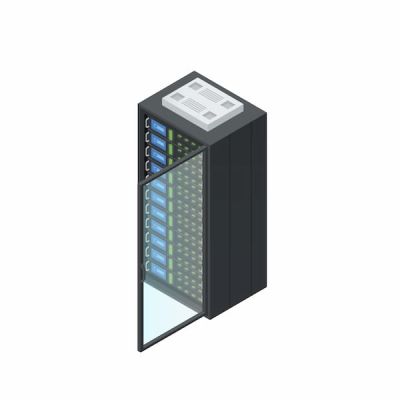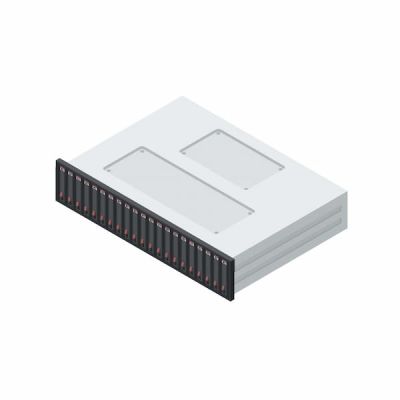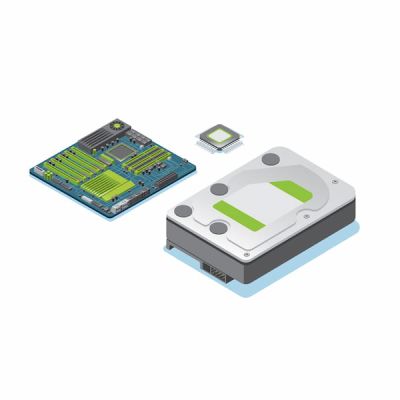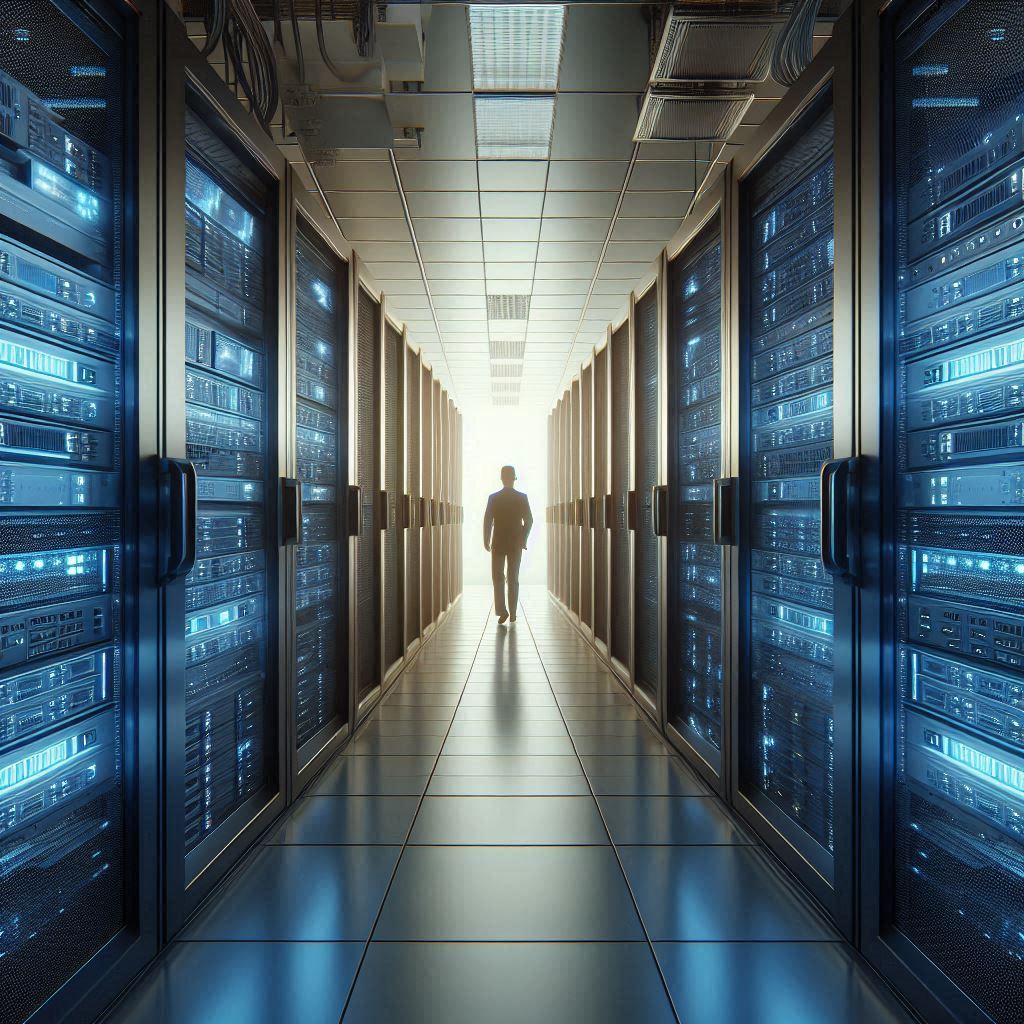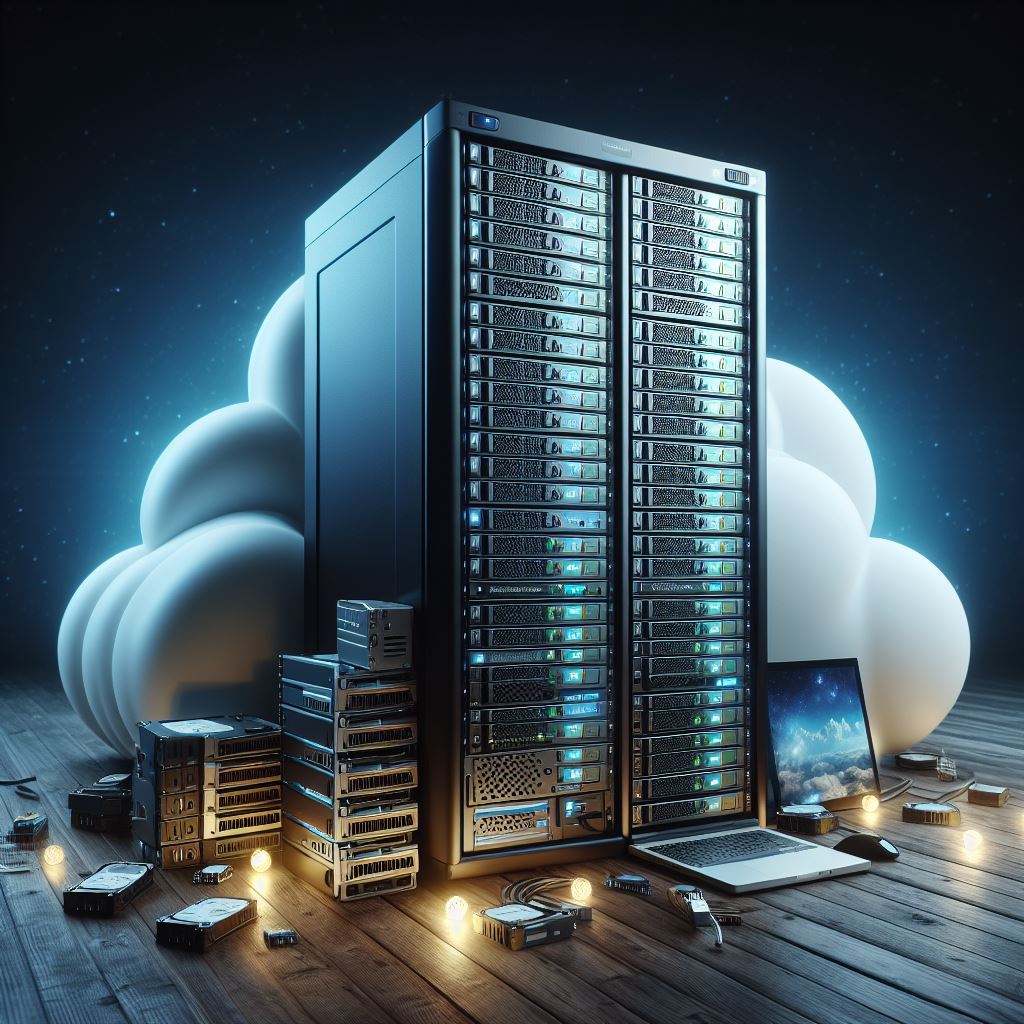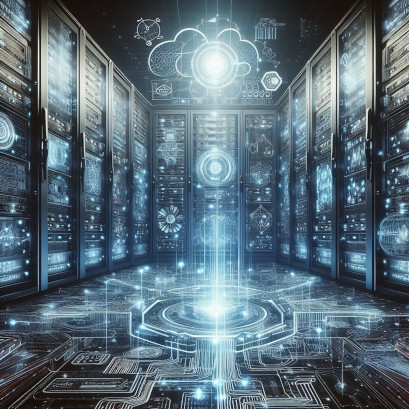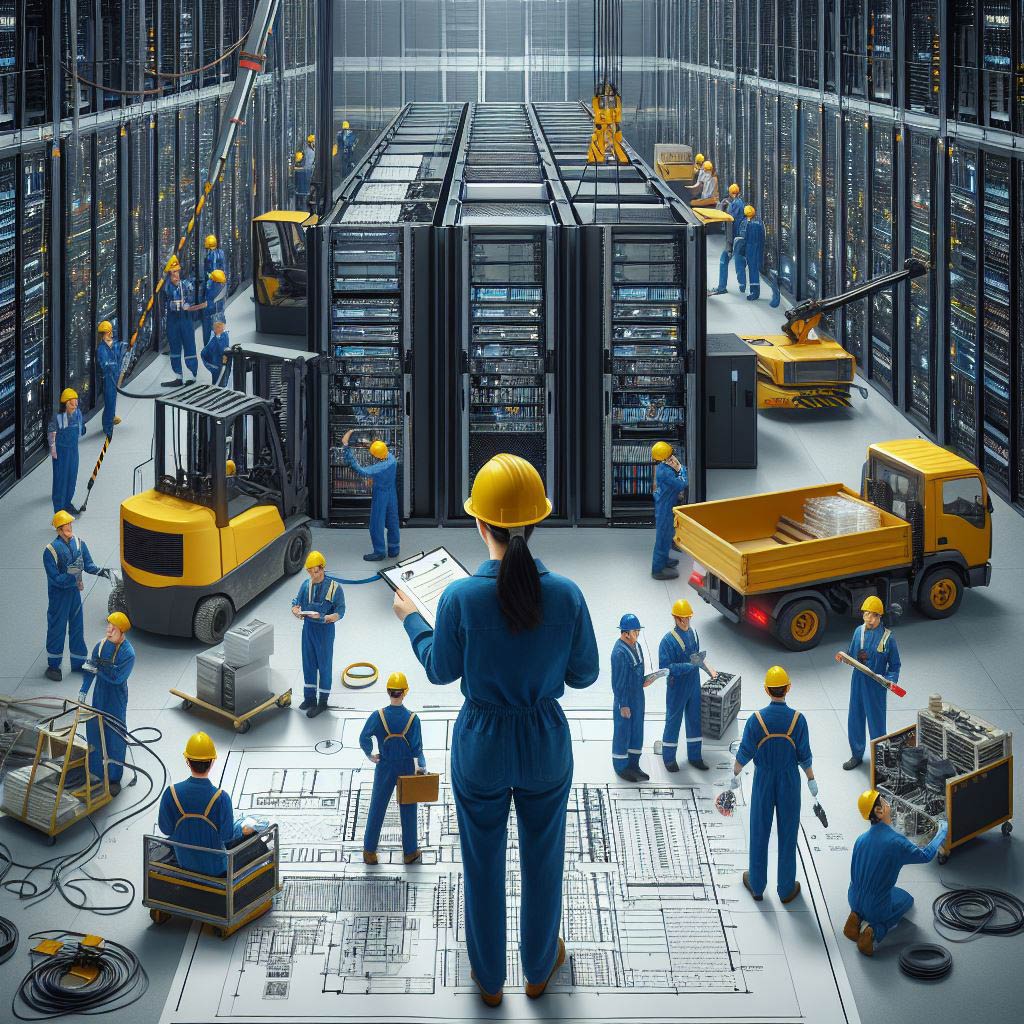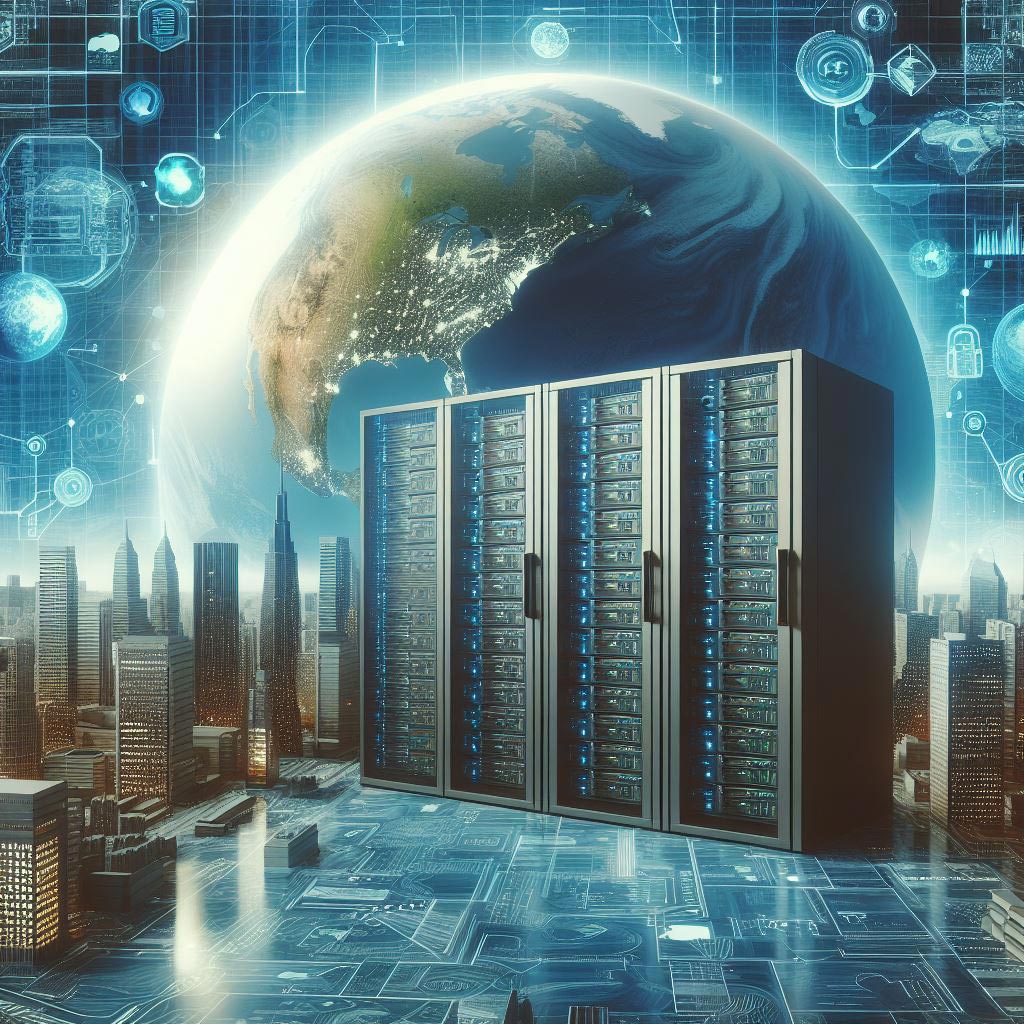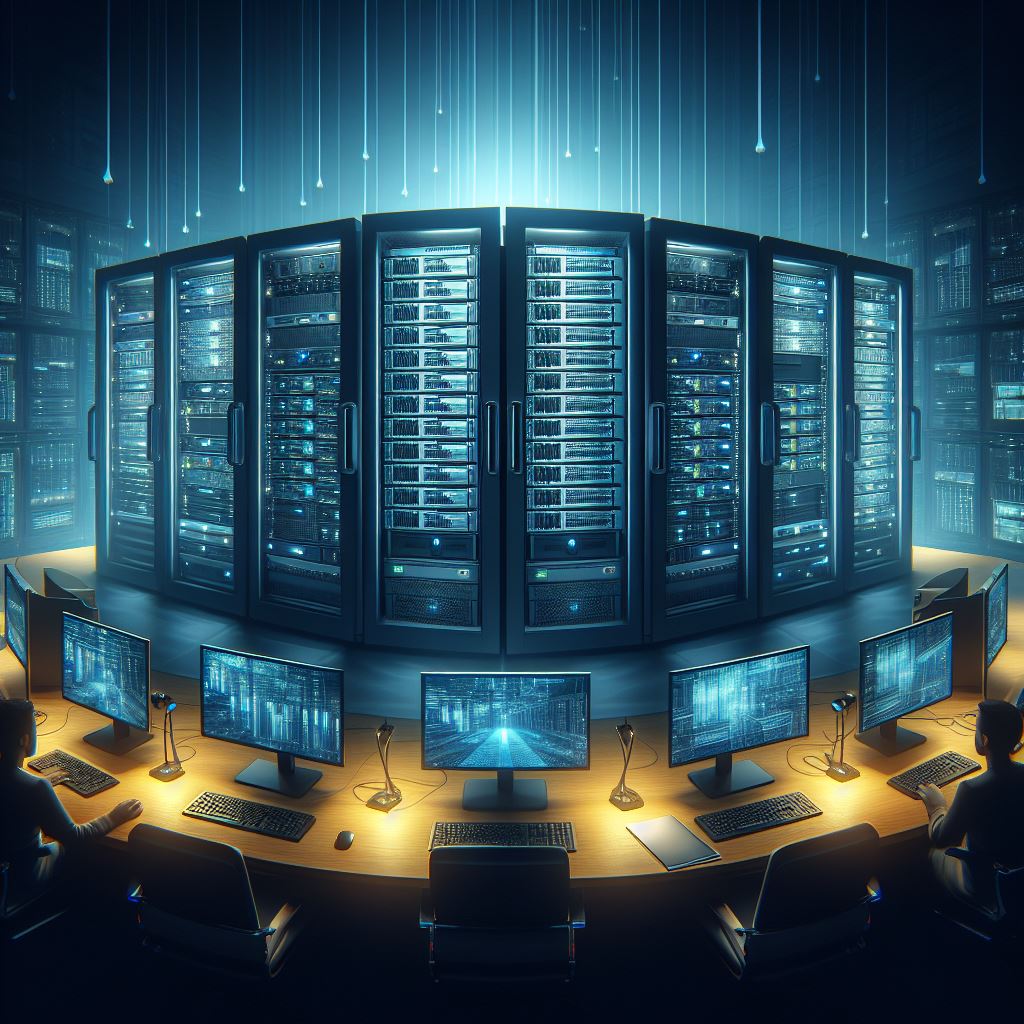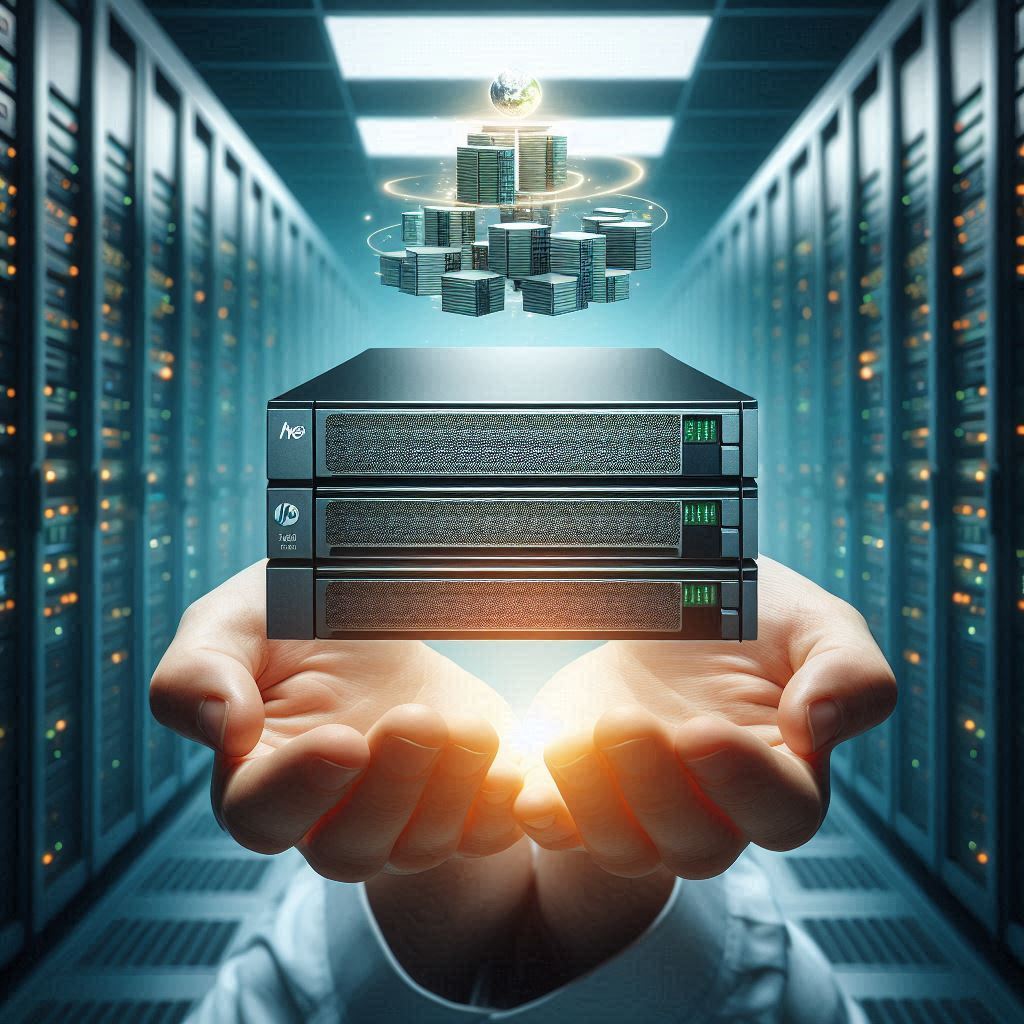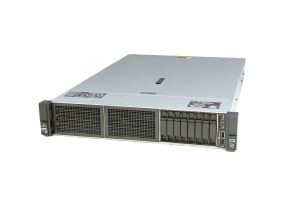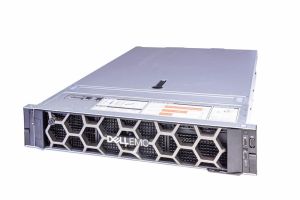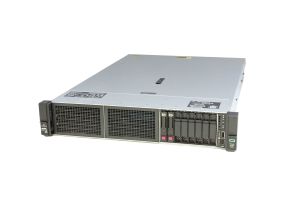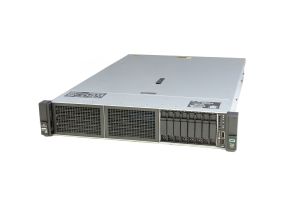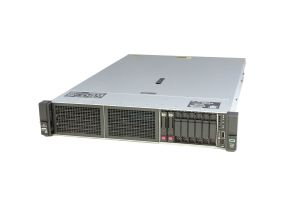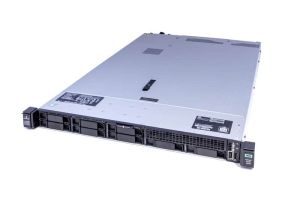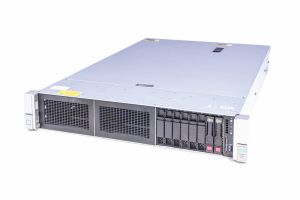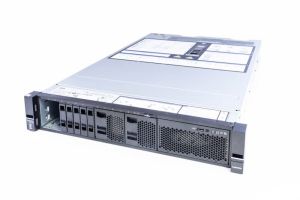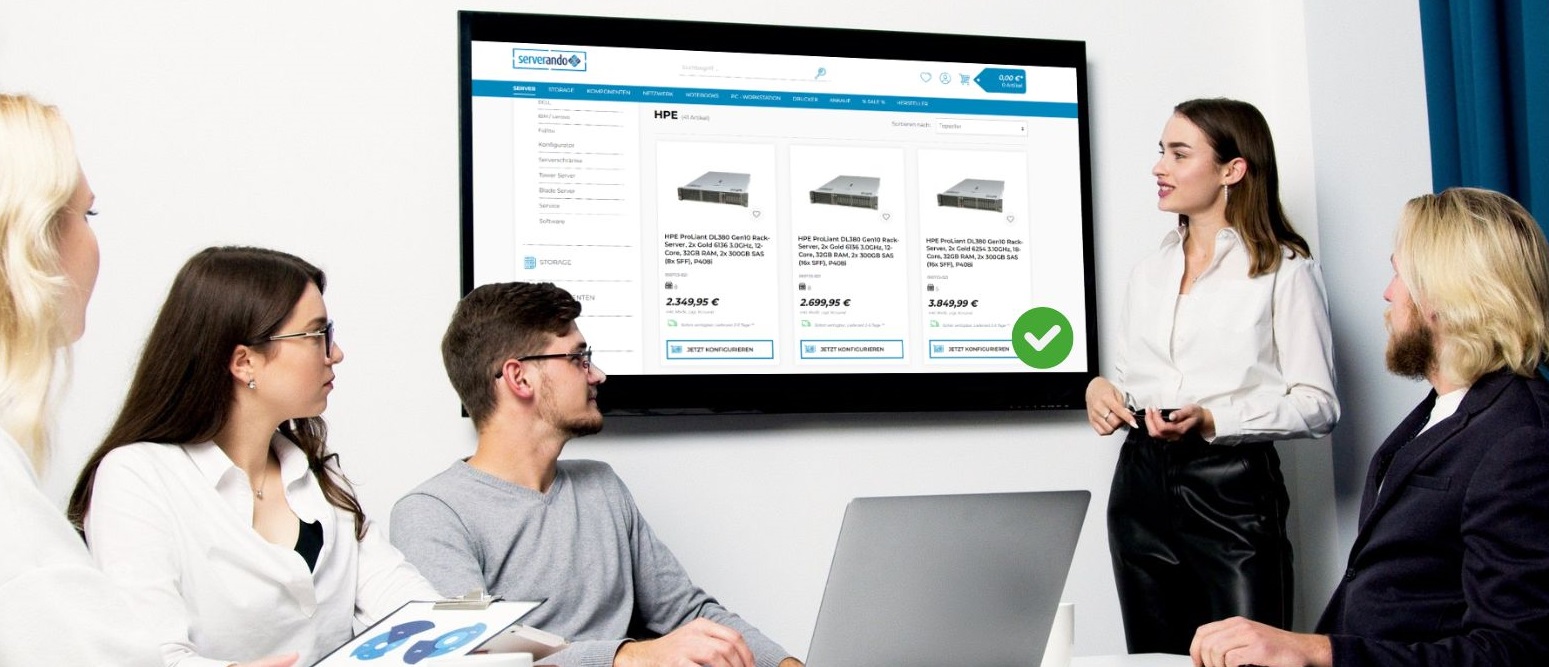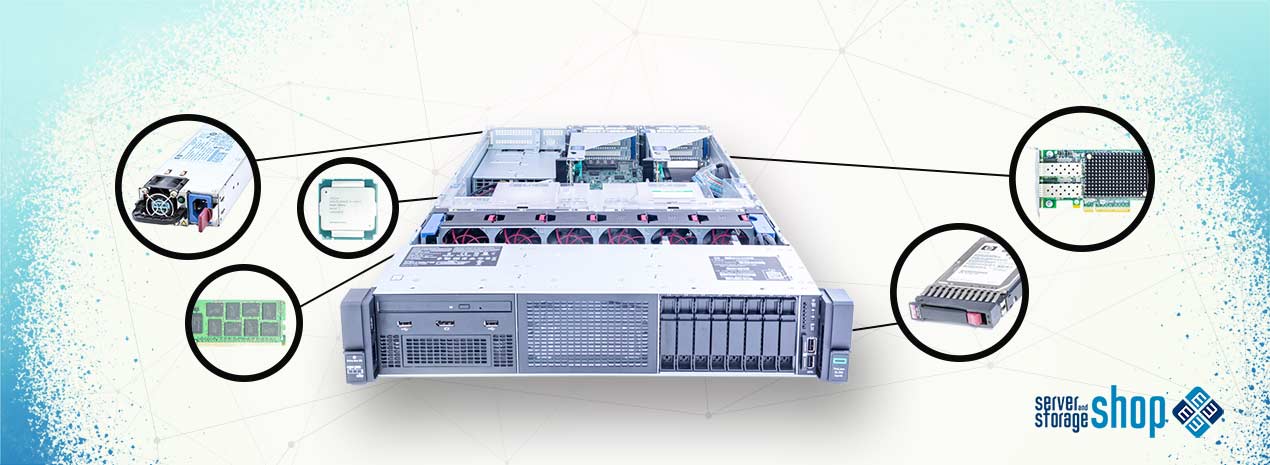Advantages through technology - building stable and future-proof IT environments with professional server hardware
Buying your own server - yes, no? What advantages do I actually have from an in-house server? And is it also worth buying a server for a smaller company? We never spoil things in the first paragraph - but this time we have to: because yes, having your own professional hardware and advanced technology gives you some competitive advantages. And it is precisely these advantages that we would like to show you in this article.
Better service, more market presence, comparison with competitors - and the technology stays the same?
Security, availability, cost savings - advantages of servers for your company
There are certainly various reasons to buy your own server hardware. At the top of the list is, of course, the optimisation and automation of certain processes in order to be able to work faster and better. Other options include, for exampleSecurity
In addition to a secure IT landscape, which consists of a well thought-out network infrastructure, security systems such as a firewall and security software (anti-virus programmes), the security of the servers themselves also plays a major role. This is because systems designed for redundancy (with secure backup solutions) can save a company's existence if the worst comes to the worst. Important data that has only been stored on an employee PC instead of in a central location, for example, can sometimes no longer be restored after a hacker attack or PC failure. If the documents, images or videos are instead backed up centrally on a file server or storage, i.e. a network data system, they will still be available even after a client PC failure. In addition, servers are generally equipped with many "safety features": hot-pluggable power supply units, fans or hard drives ensure that a defective component can be replaced during operation. A RAID set helps (depending on the RAID level) to ensure that even if one (or possibly several) HDDs or SSDs fail, the data can still be restored; ECC memory and other tools help to ensure that errors are recognised immediately and, for example, the problematic component can be reported and replaced - sometimes even before it fails.
Cost optimisation / Simplified management
Having your own rack server can also bring a certain advantage when it comes to cost optimisation. Of course, you need to be aware that the acquisition costs alone are not enough. After all, there are maintenance costs, administration costs, training costs for complex systems and, of course, operating costs (electricity/cooling). But for those who think that a system only causes costs, a high-quality rack server can also do a lot to reduce operating costs. And in two ways. Firstly, the server contributes to simplified management. No admin has to constantly switch on a device and check whether everything is OK - the system does this itself. This is because modern servers offer management functions that can monitor the function of individual components as required or warn the administrator of a failure. In this way, an interruption can be completely prevented or - if the failure is unavoidable - at least the time from recognising the problem to the "repair" is significantly reduced. This in turn means less data loss and a faster resumption of business operations - and in short, less money "slipping through the cracks". On the other hand, the use of intelligent systems can make work easier and faster for employees and help them to work more productively and efficiently. For the company, this means improved and faster throughput and, in the best case scenario, more profit.
Simplified business processes
Servers are used to simplify or speed up work steps. Not only can admin costs be saved, but a variety of other individual optimisations are also possible. New business processes can be established faster, better, more efficiently and more stably through the use of intelligent systems. Data can be retrieved via the server or the cloud from anywhere - in real time, of course. And by standardising certain processes, employees are relieved of tedious and time-consuming work. For example, it is possible to answer customer enquiries on a specific topic (such as "I'm missing my invoice" or "When will I receive a tracking number") with a pre-prepared email or to send all tracking numbers to the respective customers at the same time every day. This means that employees do not have to concern themselves with "minor details", but can utilise their valuable time more effectively and efficiently.
Competitiveness
In many industries, speed is an important criterion for staying on the ball. Automated processes, simplified communication, data that can be called up anytime and anywhere, intelligent systems that carry out regular analyses and - without the push of a button - deliver reports automatically can be decisive here. However, the basis must be right - a flourishing IT landscape with high-quality, high-performance server and storage systems is a prerequisite.
Better market presence
However, it is not only the advertising formats and advertising content that are decisive. The digital market presence also makes a significant contribution to the awareness and success of the company. Depending on the size of the company, it is worthwhile making your own website, online shop or, for example, sales lists and online catalogues available via your own web server. This gives you better control over availability and possibly also costs.
Can also be realised for SMEs - modern technology through used hardware
If you are now thinking - the arguments are convincing and the advantages are obvious, but how can I afford modern technology as a small or medium-sized company? The answer is: refurbished, i.e. used, server hardware is the key to success here. This is because the devices are as good as new, state of the art and many times cheaper than new equipment. There are well-known manufacturers on the market who offer a wide variety of server solutions for individual requirements and needs - as well as price ranges. You can also find a large number of refurbished servers here in our shop.
As an experienced IT dealer, you also have other advantages with us, as all devices are carefully checked for technical and visual defects before being sold. We also offer you the option of configuring your desired server online. Under "Configurator", you can easily and simply configure one or more servers exactly according to your needs and requirements. Our tip: it is best to seek advice from an IT system house beforehand. We will of course check the "interaction", i.e. whether the selected components fit together, and also install them.
We have summarised the points you should pay attention to when buying a server, as well as further information and advantages of servers, in some of our previous blog posts:
If you have any further questions, information or tips, please feel free to contact us at any time: info@serverando.de.

